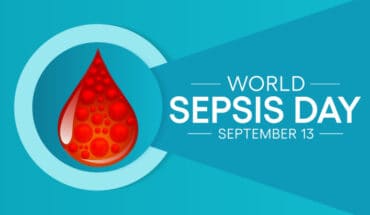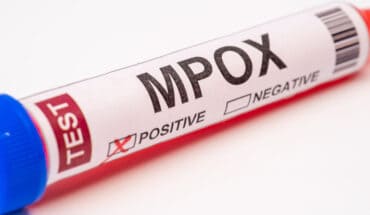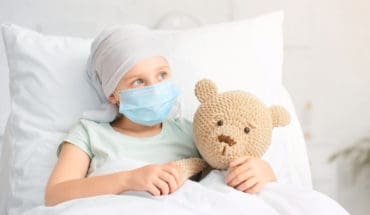New model for predicting course of COVID-19 could relieve pressure on the healthcare system: MedUni Vienna, Klinik Favoriten, Medical University of Innsbruck, Johannes Kepler University Linz and the Karolinska Institute in Stockholm joined forces to develop a mathematical model to reliably identify COVID-19 patients who are likely to have a more favourable disease course. This will allow these patients to be discharged from hospital earlier than normal, thereby relieving the pressure on the healthcare system until such time as adequate vaccination coverage has been achieved.
An important concern in the COVID-19 pandemic is providing optimum individual patient care, while at the same time preventing the collapse of the healthcare system. A particular feature of the disease caused by SARS-CoV-2 is that there is often a drastic deterioration in the patient’s condition 7 to 10 days into the illness. In order to allow for this phase, even patients with comparatively mild symptoms are kept in hospital for an extended period before they are discharged. As well as increasing the infection risk for staff, the treatment of such COVID-19 patients takes up valuable resources that are urgently needed for other hospitalised patients. “Although our knowledge about the virus is increasing daily, we do not yet have reliable decision-making aids to support earlier discharge,” points out Alice Assinger from MedUni Vienna’s Institute of Vascular Biology and Thrombosis Research.
A team of MedUni Vienna scientists led by Alice Assinger at the Center for Physiology and Pharmacology has now developed a model for predicting survival of hospitalised COVID-19 patients with a high degree of accuracy. The important aspect of this model is that it is exclusively based on existing routine clinical measurements so that it does not require any additional complex laboratory analysis.
Hospital doctors are now able to input their patients’ parameters into a freely available online calculator, so that they have a tool on hand to support them in their decisions regarding the potential discharge of patients. The mathematical model that underpins the tool was developed by Stefan Heber from MedUni Vienna’s Institute of Physiology and is based on repeated measurements of the inflammatory marker C-reactive protein, the creatinine marker that reflects kidney function and the number of platelets (thrombocytes) in the blood.
From the derived courses of these parameters within the first four days of hospitalisation, together with additional parameters such as e.g. “age of patient” and information about body temperature on admission, it is possible to predict survival with a high degree of accuracy. Heber comments: “This works independently of the length of time symptoms were present before admission to hospital.” The data from 441 patients from three different centres were used in the development of this ACCP (Age+C-reactive protein+Creatinine+Platelet) tool and the developed model was then validated using the data from 553 patients from three other independent cohorts.
“It was important to us to make the ACCP tool available for routine clinical application as rapidly as possible. The tool will hopefully help to relieve the pressure on the Austrian healthcare system until such time as adequate vaccination coverage has been achieved within the population,” says first author of the study, Stefan Heber.
This project is part of the ACOVACT study being conducted by the Medical University of Vienna and is financed by the Federal Ministry of Education, Science and Research, the Mayor of Vienna’s Medical Science Fund (COVID024) and the Austrian Science Fund (P32064). The Medical University of Innsbruck’s Department of Medicine II is also involved in project.
Service:
“Development and external validation of a logistic regression derived formula based on repeated routine hematological measurements predicting survival of hospitalized Covid-19 patients.” S. Heber. A. Assinger, et al. Link to publication: https://www.medrxiv.org/content/10.1101/2020.12.20.20248563v1.
Link to online tool: http://www.viennaplateletlab.at/covidprediction
- Gut microbiome could delay onset of type 1 diabetes - 3rd April 2025
- The da Vinci 5 Robot Is Set To Transform Bariatric Care: - 31st March 2025
- Beyond money: the hidden drivers fuelling child food insecurity - 31st March 2025






